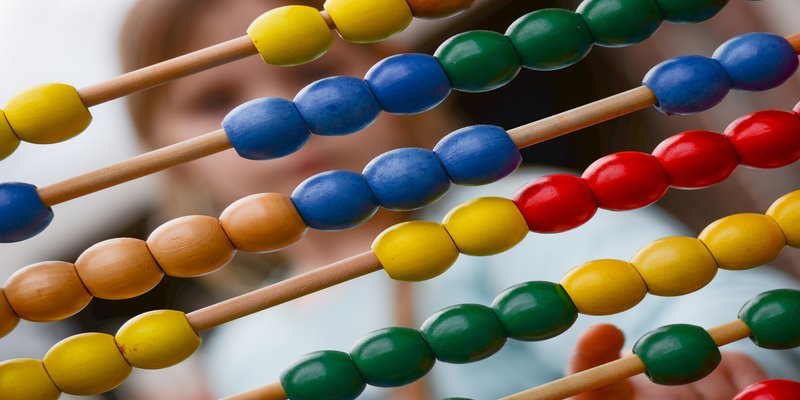
Maths is an essential skill that will be used throughout your child’s entire life and there is no getting away from it. Without maths, we could end up with a very challenging future. This is because it is interwoven into many aspects of our daily lives. We count and calculate more times in any given day than we can imagine. This could be anything from checking the time when we get up in the morning, to buying that newspaper on your way to work.
This is a skill that needs to be instilled in our children as well, so they become more conscious of the impact of maths in our daily lives. Studies have also shown that the best way to learn is by actively doing or being involved in a situation that requires the implementation of that knowledge. There are a number of things we could do with our children –at different stages of their development, to hone in on and boost their mathematical skills. Here are a few things that you as a parent can do to help take your child’s maths to the next level.
Shopping
Shopping is perhaps one of the most useful and fun ways to learn maths, and to put its principles into practice. One of the first ways to use it is by helping your child to become a thrifty shopper.
Take your child to a variety of stores. Ask them to note the price on specific items, and then to decide which store has the best deals. If certain stores are cheaper in a certain category of items but more expensive in others, have your child decide how to figure out where the most money would be saved, and why.
When you are at each store, have your child hold up different brands of one item, and teach them how to find the answer about which one is cheaper per unit, even if the sizes are different. Find out which ones would be a better deal in comparison to others.
Family Budgeting
Let your child have a say in the conversation when you are talking about family budgeting. Talk about money being earned versus money being spent. Discuss ways to save money, and decide on solutions for budgeting issues.
The more you include your child in the topic, the more involved they will feel in your family’s success. This brings a sense of responsibility and will make them think twice before asking for money for frivolous things. It also gives them a great sense of budgeting, and presents a way for them to use their maths skills so that they don’t lose them.
Budgeting provides endless access to subtraction and addition practice, and the opportunity to learn the importance of always double checking your final answer.
This could be further developed when your child begins to receive pocket money. You could help them prepare a very simple balance sheet, to keep record of their expenditure and savings. Discuss the different terms applied to the practice and help them in the implementation.
Baking
When your child is learning about fractions or proportions, look no further than baking for the practice they need to make the concepts become concrete in their minds. Play around with recipes. Do the full recipe, and then do only half of another recipe, and double yet another.
If you run out of measuring spoons and cups in the proper size, talk about how you can substitute another one. For example, if your 1/2 cup measuring cup is gone, you can fill up the 1/4 cup measuring cup twice for the same amount. Thereby incorporating the concept of conversions. The possibilities are endless!
Dinnertime
Dinnertime is another great way to practice maths concepts such as fractions. Bake a pizza and cut it into 16 pieces, and go from there. This is a wonderful time when you can teach your child about the addition and subtraction of fractions. You can also discuss how different fractions equal the same amount, such as 1/4 being the same amount as 2/8 or 4/16. Dividing fruit such as oranges is another way to learn about fractions.
Any food can be sorted if you have a younger child who needs practice counting, adding or subtracting. Multiplication can also be learned on a small scale this way, with easily sorted foods.
Games
We have touched on real-life shopping but that’s not to say you couldn’t start earlier, with play-shopping. This is a great way to get the younger ones in the mathematical mood much earlier. As they get older you could introduce board games like Monopoly. There are games that are aimed at reinforcing maths concepts but we are talking about incorporating maths into our everyday lives in a more organic way.
Conclusion
There are a great number of ways to encourage the learning of maths when you are at home with your child. Pick and choose the ones that you feel your child will respond best to. In a matter of time, you will find your child becoming more confident in math than they ever have been before.
Click on the following link to read up some more on maths:
https://www.leadersarereaders.co.uk/4-pluses-for-developing-a-strong-maths-foundation
Also feel free to stop by any of our centres for more info on how we can help your child with our Award-winning Maths Programme.